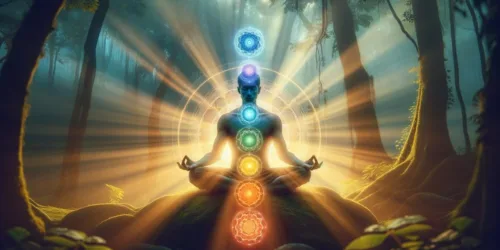The Power and Pain of Being an Outsider
You've always danced to the beat of a different drum, haven't you? While others seem to effortlessly blend into the tapestry of social norms, you've found yourself lingering at the edges, where the weave is loose and the pattern unclear.
It's a place of both unique perspective and silent yearnings, where the power of keen observation meets the ache of unspoken kinship. You navigate this duality with a grace that's unseen by many, your insights sharpened by the solitude that accompanies the role of an observer.
And yet, there's a richness in this space that's ripe for exploration—a treasure trove of growth and understanding that calls to you, promising to reveal the intricate balance between the pain of exclusion and the empowerment of individuality.
Stay a while, and we might just uncover the strength hidden in the shadows of being an outsider.
Key Takeaways
- Being an outsider can be a painful experience, stemming from shyness, an unconventional upbringing, and a sense of disconnection from the soul.
- The feeling of being an outsider can lead to an existential crisis, as it creates a lack of belonging and a search for deeper answers.
- Despite the challenges, being an outsider holds power and potential, motivating the search for true home and belonging and possessing a level of soulful sensitivity.
- Being an outsider is a crucial motivator for embarking on the spiritual path, challenging societal norms, and leading to self-fulfillment, self-mastery, and self-realization.
Origins of Outsider Feelings

The roots of feeling like an outsider often stem from personal history and psychological experiences that shape one's perception of belonging. You may recognize the psychological impact as a profound sense of disconnection, perhaps triggered by painful shyness or an unconventional upbringing. These feelings don't just live inside; they've social repercussions, affecting interactions and relationships.
Observing your interactions, you might notice patterns of withdrawal or a keen sense of being different that sets you apart from the group.
Analyzing this, it's evident that such internal narratives not only influence self-esteem but also how you navigate social structures. The challenge becomes a delicate balance—honoring your unique perspective while mitigating the sense of isolation it can foster.
Understanding these origins is crucial in addressing the deeper yearning for connection.
Existential Crisis Explored

Delving into an existential crisis, you might confront a profound disquiet, sensing that something fundamental is amiss in your place in the world. This grappling with meaninglessness often arises from specific existential crisis triggers.
| Trigger | Impact on Identity | Navigating Solutions |
|---|---|---|
| Meaninglessness | Loss of direction | Pursuit of personal values |
| Isolation | Lack of connection | Building authentic relationships |
| Mortality | Fear of insignificance | Creating a legacy |
| Freedom | Choice paralysis | Embracing decision-making |
| Responsibility | Burden of self-determination | Accepting personal agency |
In navigating existential depression, it's crucial to dissect these triggers analytically. You're tasked with observing your life's structure and objectively identifying areas where meaning can be cultivated or restored. Understanding and addressing these areas is key to finding balance and clarity.
Harnessing Outsider Strengths

While navigating existential depression requires a deep understanding of its triggers, it's equally important to recognize and harness the inherent strengths that come with feeling like an outsider.
Embracing uniqueness isn't just about accepting differences; it involves leveraging them as assets. Your unique perspective can lead to innovative ideas and creative solutions often overlooked by others.
Navigating social interactions as an outsider also provides a vantage point to observe dynamics objectively, offering insights into human behavior and group mechanics.
Spiritual Journey Initiation

Embarking on a spiritual journey often begins with the profound realization that you're seeking something beyond the conventional scope of daily life. As you become attuned to the signs of spiritual awakening, you may notice a disconnection from former interests and a yearning for deeper meaning.
This isn't a fleeting phase but an initiation into a transformative process. Navigating the spiritual path requires discernment; it's about peeling back layers of societal conditioning to uncover your authentic self. It's analytical, involving constant observation of your inner and outer worlds. You're called to objectively examine beliefs and experiences, fostering growth and understanding.
As an outsider, this journey isn't just a rebellion against norms but an embrace of a soulful quest for truth.
Outsider Benefits and Challenges

Navigating the terrain of being an outsider comes with a unique set of benefits and challenges, each shaping your journey toward self-discovery and personal growth. As you find yourself on this path, you're often dealing with:
- Navigating societal expectations that don't align with your intrinsic values, creating a dissonance that's both freeing and disorienting.
- The advantage of a fresh perspective, allowing you to innovate and spark change where others might simply conform.
- Overcoming feelings of isolation, a task that, while daunting, forges resilience and can lead to finding a more authentic community.
- The constant balancing act between expressing your individuality and seeking acceptance, a dance that teaches you the depth of your strength and character.
This is your journey, filled with complexities that you're uniquely equipped to navigate.
Providing Outsider Support

Providing support for outsiders is crucial, as it facilitates their journey towards self-acceptance and integration within the broader community. Creating community becomes a vital endeavor in overcoming isolation, a common challenge you may encounter as an outsider. It's about establishing networks where you can share experiences, find common ground, and validate each other's feelings.
Through support, you're not just tackling the symptoms but addressing the root causes of alienation. It becomes a collaborative effort to build bridges, foster understanding, and encourage inclusivity. By engaging in communities that resonate with your values and experiences, you begin to dismantle the barriers that once made you feel disconnected.
Such support systems are instrumental in transforming the outsider experience from one of pain to empowerment.
Frequently Asked Questions
How Does the Experience of Being an Outsider Vary Across Different Cultures and Societies?
You'll find cultural isolation varies widely; in some cultures, it's stark, hindering societal integration, while in others, diverse perspectives are embraced, making the outsider experience less pronounced and more accepted.
Are There Any Notable Historical Figures Who Have Openly Discussed or Exemplified the Outsider Experience, and What Can We Learn From Them?
You're standing on the shoulders of giants who felt like aliens. Outsider artists like Van Gogh provided existential reflections, teaching us that from great isolation can come profound insight and revolutionary creativity.
As an outsider, you sustain relationships through resilience, finding common ground where empathy bridges gaps. It's about observing, adapting, and maintaining an open dialogue despite differing perceptions of the world.
What Role Does Technology and Social Media Play in Both Exacerbating and Alleviating the Feelings of Being an Outsider?
Technology amplifies your sense of being an outsider through digital isolation while online echo chambers can reinforce it. Yet, it also connects you with like-minded communities, mitigating feelings of alienation.
How Can Educators and Employers Better Accommodate and Leverage the Unique Perspectives and Contributions of Individuals Who Feel Like Outsiders?
You can foster inclusivity through diverse strategies and training, accommodating unique perspectives, and leveraging outsider contributions for a richer, more innovative educational and workplace environment.
Conclusion
Like a lone wolf silhouetted against an immense, starry sky, you've traversed the edges of a forest dense with conformity. Your path, illuminated by the moon's introspective glow, has revealed both thorns and blooms.
In embracing your outsider's odyssey, you've woven pain into strength, solitude into wisdom. Stand tall amidst the vast expanse, for your journey resonates with the universal quest for belonging, etching a trail of enlightenment for those who dare to walk alone.






